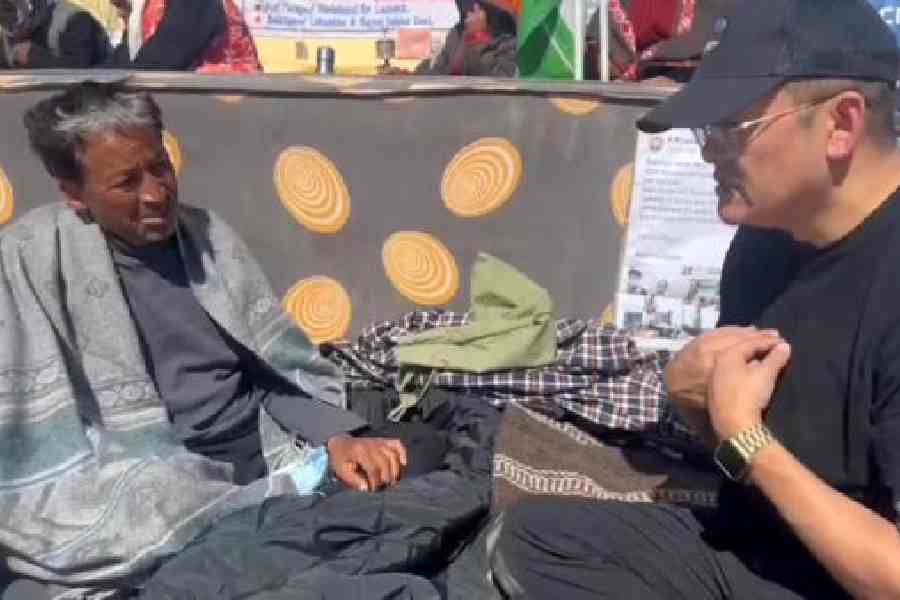Hamro Party president Ajoy Edwards has sat on a 48-hour hunger strike to express solidarity with Ramon Magsaysay Award winner and climate activist Sonam Wangchuk in Ladakh and proposed the formation of a common platform of the country’s mountainous border areas to take the issues of the regions forward.
Wangchuk started a fast for 21 days, demanding Ladakh's statehood and inclusion in the Sixth Schedule of the Constitution. The hunger strike entered its 16th day on Thursday. Ladakh is a Union territory now.
Edwards joined Wangchuk for a 48-hour fast on Tuesday. On completion of his fast in Ladakh on Thursday, Edwards said he had proposed the constitution of a common platform of people from the hilly border states to take forward their demands.
“Just because we don’t have the numbers, our political currency is weak. This morning, I was talking to Sonam Wangchukji and proposed that we form a common platform of border regions from Kashmir to Ladakh, Darjeeling, Sikkim right up to Arunachal (Pradesh). Perhaps, the government will then listen to us,” said Edwards.
Edwards, elected member of the Gorkhaland Territorial Administration Sabha, said lack of protection was ruining the hills. “Our people do not have land rights. If one is to see the plight of the people when there is no protection, you need to come to Darjeeling,” he said.
The Hamro Party leader said tea garden lands where people lived for centuries in Darjeeling were granted to industrialists to set up business ventures while estate workers were paid peanuts and did not enjoy land rights.
The Ladakhi people have also expressed their apprehension that mining and other activities will hit fragile regions if the mountainous areas and their ecology are not safeguarded.










